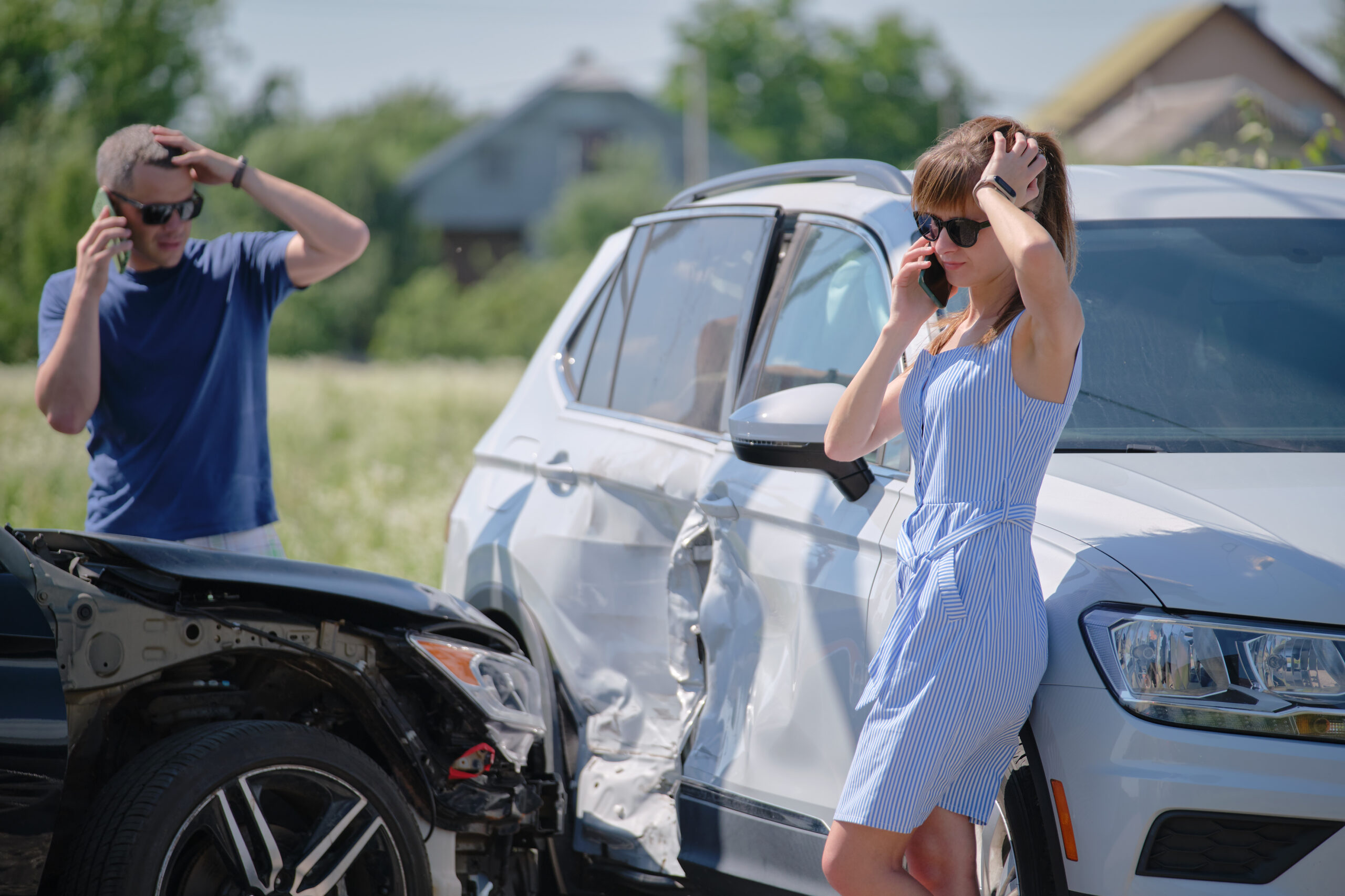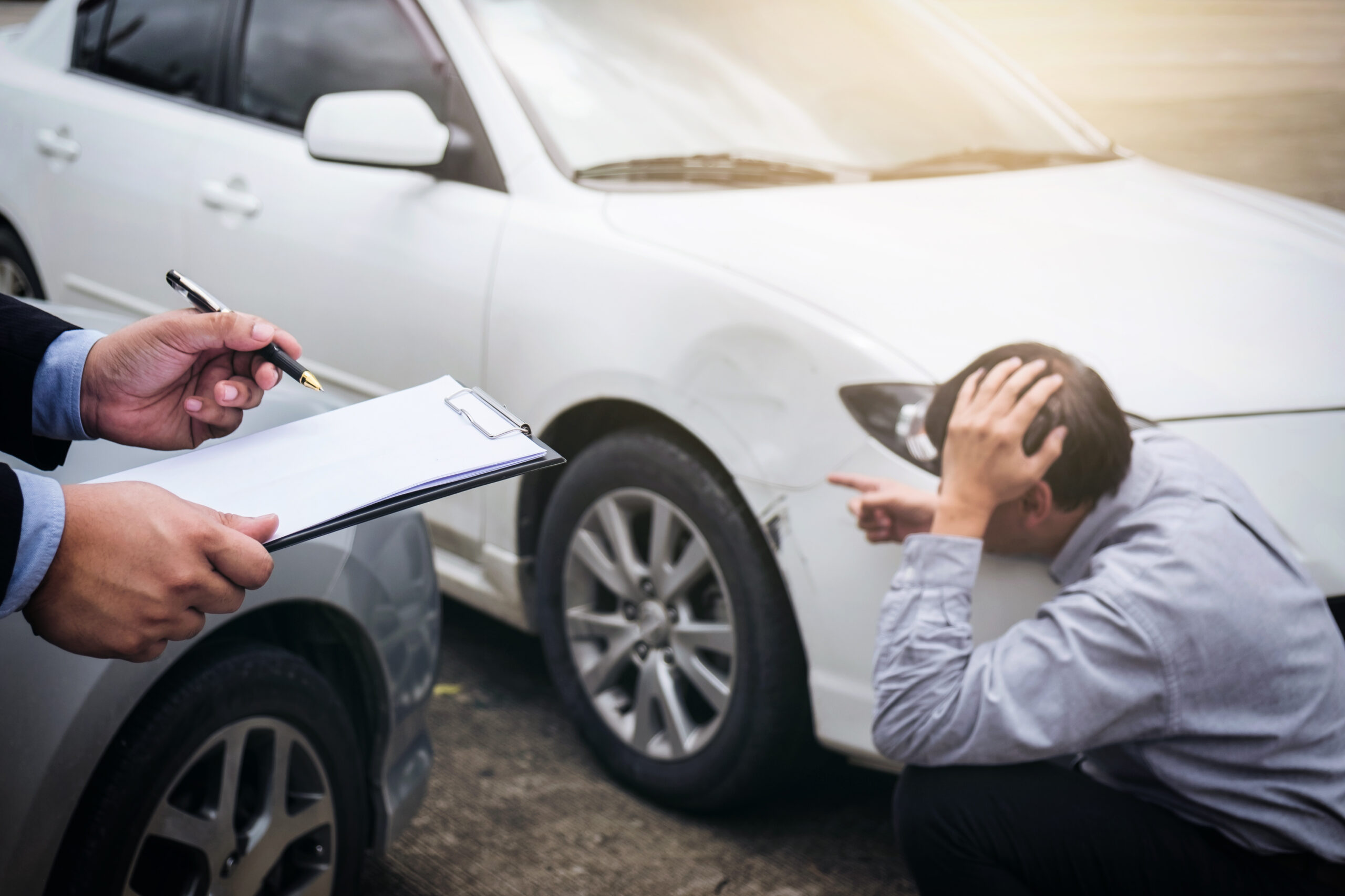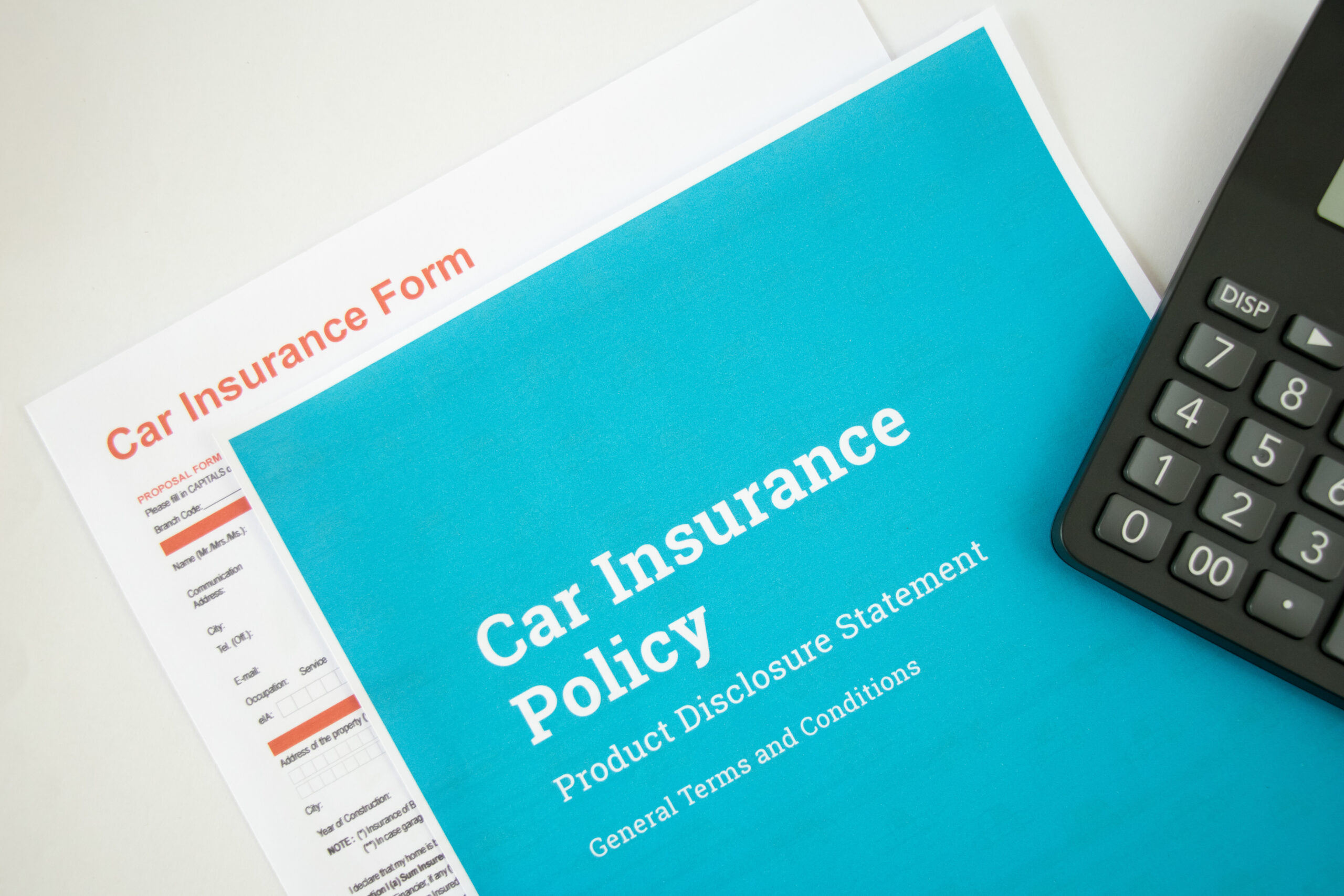Full coverage doesn’t always mean enough coverage
One of the first things we ask clients who come into our office is: “who do you have insurance with, and do you know what coverages you have?”
Most of the time, they say they have “full coverage,” but do not know what that actually means. They also don’t know how much and what types of coverage they have.
The time to know this is BEFORE you get into an accident.
Insurance policies can be complex, and the terminology used can vary between companies. It is crucial for individuals to understand their insurance coverage before an accident occurs so they can be adequately prepared. After reading this article, look at your own policy and talk to your insurance agent to make sure you understand exactly how much of what type of coverages you have.

Basic Overview of Coverages Available
Full coverage typically refers to a combination of liability insurance, which covers damage to other people’s property or injuries to others in an accident you cause, and physical damage coverage, which includes both collision coverage (for damage to your vehicle in an accident) and comprehensive coverage (for non-collision-related damage to your vehicle, such as theft or vandalism).
Here is a short list of the basic coverages you should have on your policy:
- Liability insurance – Liability insurance helps protect you financially if you cause an accident and injure someone else or damage their property. The types of liability insurance include bodily injury coverage and property damage coverage. The specific coverage limits can vary depending on the policy and state requirements.
- Bodily injury coverage – Bodily injury coverage covers the other party’s damages to his or her person in case you are at-fault for the automobile accident. This includes the other party’s injuries, medical expenses, pain and suffering, any lost wages incurred, any loss of earning capacity, embarrassment and inconvenience. If the damages for the injured individual exceed the at-fault party’s bodily injury coverage, the at-fault party could be personally responsible for the excess amount.
- Property damage coverage – Property damage coverage pays for the repair or replacement of someone else’s property that you damage in an accident when you are at fault. Like bodily injury coverage, the at-fault party could be personally responsible if the property damage to the other vehicle exceeds the at-fault party’s coverage.
- Uninsured motorist coverage – Uninsured motorist coverage is designed to protect you if you’re involved in an accident with a driver who doesn’t have insurance or whose identity is unknown. If the other party is at fault and lacks insurance or cannot be identified following the accident, your own policy can provide coverage for your medical expenses and property damage, up to the limits specified in your policy. For property damage recovery using this type of insurance, a deductible may need to be paid.
- Underinsured motorist coverage – Underinsured motorist coverage helps cover the gap when you’re involved in an accident with a driver whose insurance limits are insufficient to cover the damages. As of July 1, 2023, if the other party’s insurance is not enough to cover your expenses, your own policy can provide additional coverage on top of the other party’s coverage up to the limits stated in your policy. The limits of this coverage, like uninsured motorist coverage, normally equals your liability bodily injury limits. However, if you have more than minimum limits of liability coverage, you may opt out in writing to have this coverage lower than your liability coverage. We certainly recommend not opting out and keeping your uninsured/underinsured coverage the same as your liability coverage.
- Collision coverage – Collision coverage is an optional insurance component that helps pay for the repair or replacement of your own vehicle in the event of an accident, regardless of fault. If you are at fault in an accident, collision coverage can help cover the costs of repairing your vehicle after you pay the deductible. Without this coverage, you are stuck paying for your repairs to your vehicle if you are at fault for an accident.
- Medical payments coverage – Medical payments coverage, also known as MedPay, is an optional coverage that can help pay for medical expenses resulting from injuries sustained in an accident involving a car, regardless of fault. If you do not have health insurance, it can cover medical expenses resulting from the accident like hospital bills, doctor visits, and sometimes even funeral costs. If you have health insurance, it can reimburse you for any out-of-pocket medical costs and for any amounts that your health insurance actually pays. The coverage limits can vary depending on the policy.
- Rental Car Reimbursement – It’s also good to add rental car reimbursement so you can have a car to use during the accident investigation.
Usually, the cost of increasing or adding these coverages is minimal per month. Contact your insurance agent to find out the costs of any changes you want to make to your policy.
 What the Injured Party is Entitled to in Virginia
What the Injured Party is Entitled to in Virginia
After an accident, the injured is entitled to collect certain “damages” caused by the at-fault party. This is where having expertise in knowing what your case is actually worth is helpful when negotiating with the insurance company. Many of these damages do have an actual dollar amount, but some don’t, and this is where a skilled attorney can really make a difference in the amount you are awarded.
These are some of the damages that you can qualify for in the state of Virginia:
- Bodily Injury – injuries that you suffer but you need to prove that you didn’t already have these injuries. A broken bone is obvious but soft tissue damage is hidden and the insurance company may try to blame a pre-existing condition.
- Lost Wages – will need tax returns to prove income that is potentially lost during your accident and recovery.
- Medical Bills – the defendant is responsible for the entire amount regardless of if your insurance has paid on them or not, but you need to also get the defendant’s insurance company to reimburse you for the full amounts.
- Property Damage – the same situation applies here as the above, but property damage can be a little more cut and dry.
- Pain and Suffering – it’s hard to put a dollar amount on, but insurance companies must take this into consideration. You will need to argue your case with the insurance company to get the amount you want and usually they don’t award this unless there is an attorney involved.
- Mental Anguish – not as big a component usually, but sometimes a client is afraid to resume normal activities like driving after an automobile accident or being around dogs after a dog attack. You may want to treat with a psychologist/psychiatrist to have a professional opinion in order to collect damages here. Also, hard to put a dollar amount on.
- Inconvenience – after losing a vehicle and even during an accident, you may miss out on important life events (like a high school graduation) and have issues getting to work. This is admissible and your attorney can argue with the insurance company that if this goes to court, a jury would most likely side with the plaintiff. Insurance companies try to avoid going to court.
- Embarrassment – scars from injury can cause great embarrassment, like having dog bite or accident scars on your face, neck, arms or legs where they are highly visible. This is also hard to put a dollar amount on and your attorney will know how much to ask for in this case.

What to Remember
Minimum Coverage – Liability Coverage in the State of Virginia is currently $30,000 per person/ $60,000 per accident. In January 2025, it’s going up to $50,000 per person/$100,000 per accident. We recommend having at least $100,000 per person/ $300,000 per accident in liability coverage as we are seeing more catastrophic injuries and higher medical costs than we did 25 years ago. Don’t forget, if you are hit by someone else, you are able to stack that liability coverage of the defendant with your Underinsured/Uninsured Motorist Coverage.
Statute of Limitations – You have 2 years from the date of the accident to file a lawsuit against the at-fault parties, but it’s better to file immediately. Many clients try to negotiate claims themselves, then get lowballed and come to us. Don’t wait until the end of the statute to call an attorney. Even if you want to handle the claim yourself, we recommend that you call an attorney anyway to find out what all your options are and what the laws are. There are no guarantees in the law that you are going to get what you think you deserve.
Higher Awards – Prepare yourself in case you cause an accident. If the person you hit gets an award of $60,000 and you only have $30,000 in coverage, you are personally responsible for the extra $30,000. Our law firm has rarely tried to sue an individual for this extra money, but an insurance company can and will. This rarely happens but it can happen, so be prepared.

Be Prepared
Educating yourself about different types of insurance coverage, policy terms, and limits is beneficial to ensure that you have appropriate protection and can make informed decisions. Insurance professionals can provide guidance and clarity on the specific coverage options available, helping individuals understand their policies more thoroughly. Remember, though, that if you’ve been in an accident, the insurance company you are dealing with is going to try and give you as little compensation as possible so it’s best to contact an attorney to review your case even if you think you want to handle it yourself. We are available 24×7 for free consultations. Contact us today: 757-547-5555. WD-Law.com.

